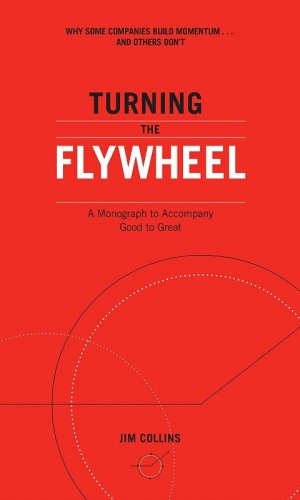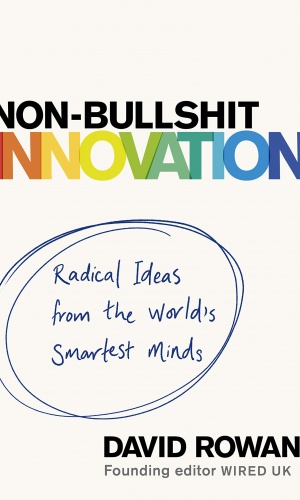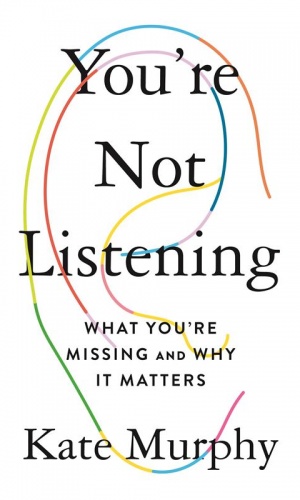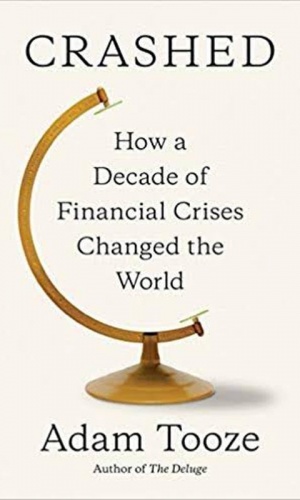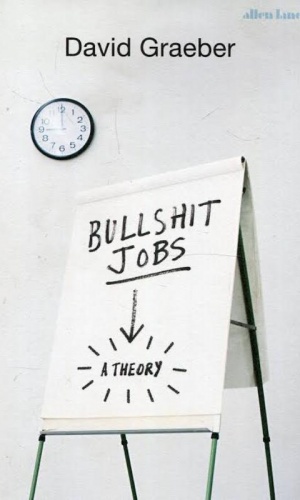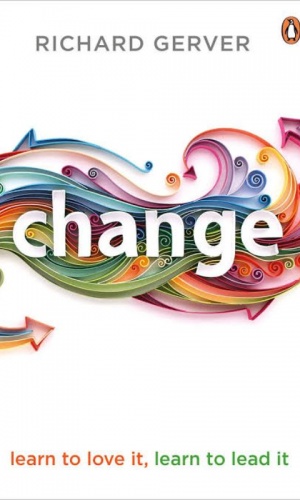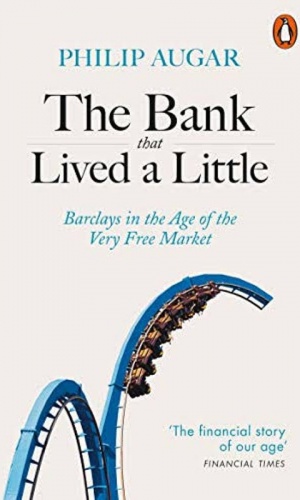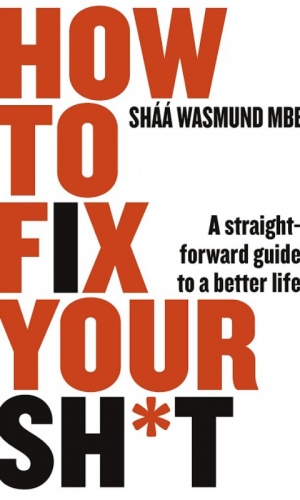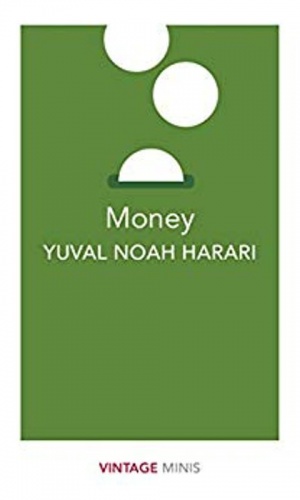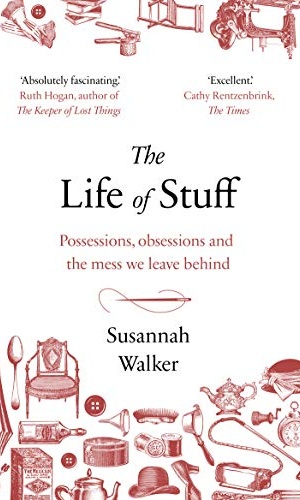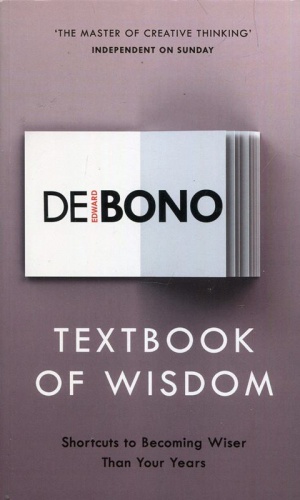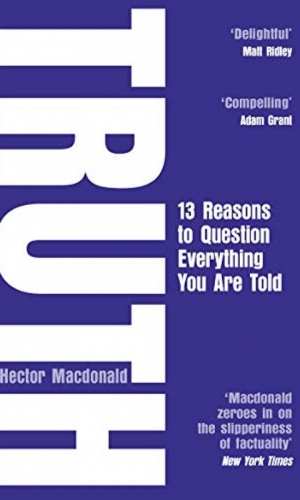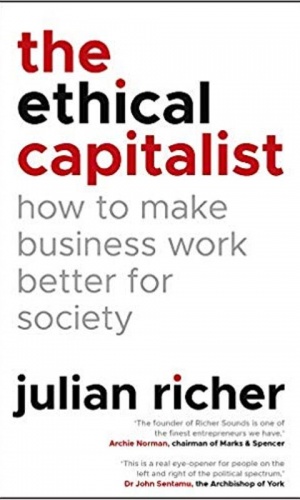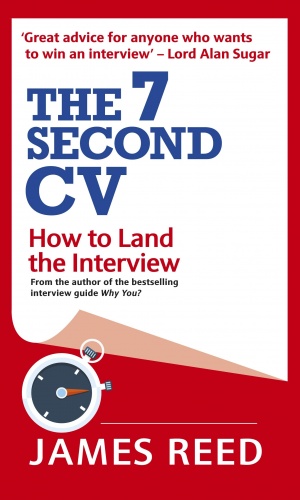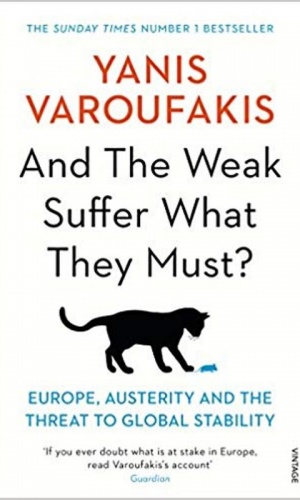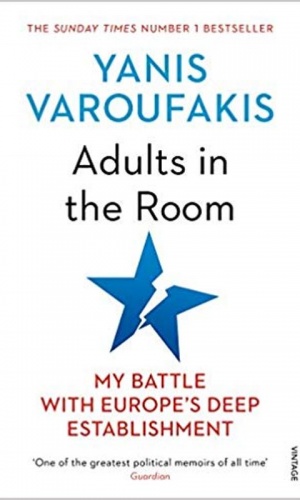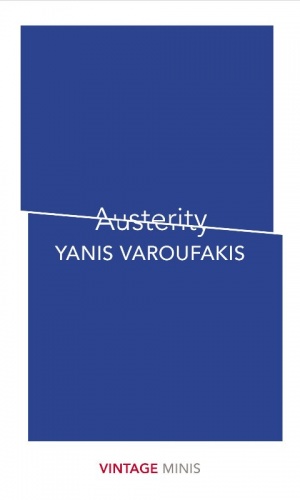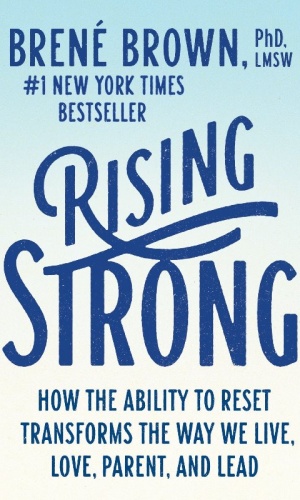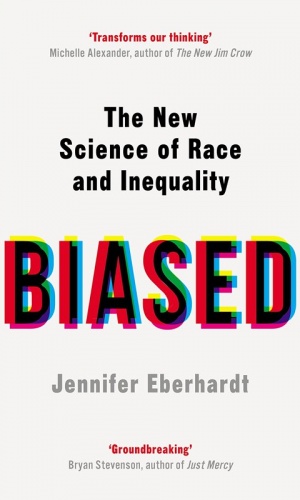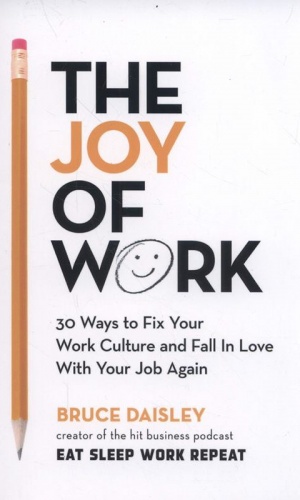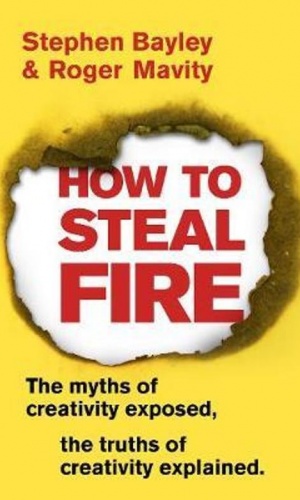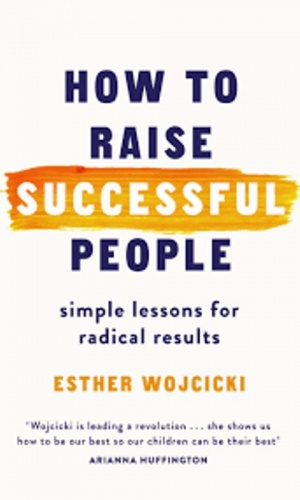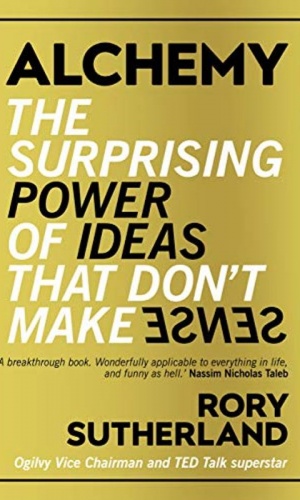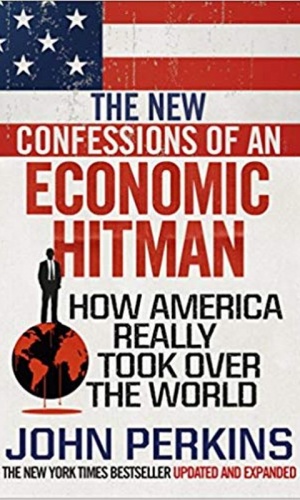-
Turning The Flywheel
A companion guidebook to the number-one bestselling Good to Great, focused on implementation of the flywheel concept, one of Jim Collins’ most memorable ideas that has been used across industries and the social sectors, and with startups.
The key to business success is not a single innovation or one plan. It is the act of turning the flywheel, slowly gaining momentum and eventually reaching a breakthrough. Building upon the flywheel concept introduced in his groundbreaking classic Good to Great, Jim Collins teaches readers how to create their own flywheel, how to accelerate the flywheel’s momentum, and how to stay on the flywheel in shifting markets and during times of turbulence.
₦3,900 -
Non-Bullshit Innovation
‘In this remarkable book, David Rowan tells a story of transformation: how an organisation has found a new way of doing things through innovation driven by ruthless entrepreneurial imagination. What is especially useful is that he does not just stick with small startups, let alone dreamy “inventors”. He finds innovation in big companies and even within governments.’ – Matt Ridley, The Times
₦6,300 -
You’re Not Listening
When was the last time you listened to someone, or someone really listened to you?
“If you’re like most people, you don’t listen as often or as well as you’d like. There’s no one better qualified than a talented journalist to introduce you to the right mindset and skillset―and this book does it with science and humor.”
-Adam Grant, #1 New York Times bestselling author of Originals and Give and Take“An essential book for our times.”
-Lori Gottlieb, New York Times bestselling author of Maybe You Should Talk to SomeoneAt work, we’re taught to lead the conversation.
On social media, we shape our personal narratives.
At parties, we talk over one another. So do our politicians.
We’re not listening.
And no one is listening to us.Despite living in a world where technology allows constant digital communication and opportunities to connect, it seems no one is really listening or even knows how. And it’s making us lonelier, more isolated, and less tolerant than ever before. A listener by trade, New York Times contributor Kate Murphy wanted to know how we got here.
In this always illuminating and often humorous deep dive, Murphy explains why we’re not listening, what it’s doing to us, and how we can reverse the trend. She makes accessible the psychology, neuroscience, and sociology of listening while also introducing us to some of the best listeners out there (including a CIA agent, focus group moderator, bartender, radio producer, and top furniture salesman). Equal parts cultural observation, scientific exploration, and rousing call to action that’s full of practical advice, You’re Not Listening is to listening what Susan Cain’s Quiet was to introversion. It’s time to stop talking and start listening.
₦5,300 -
Crashed
We live in a world where dramatic shifts in the domestic and global economy command the headlines, from rollbacks in US banking regulations to tariffs that may ignite international trade wars. But current events have deep roots, and the key to navigating today’s roiling policies lies in the events that started it all—the 2008 economic crisis and its aftermath. Despite initial attempts to downplay the crisis as a local incident, what happened on Wall Street beginning in 2008 was, in fact, a dramatic caesura of global significance that spiraled around the world, from the financial markets of the UK and Europe to the factories and dockyards of Asia, the Middle East, and Latin America, forcing a rearrangement of global governance.
₦8,500 -
Bullshit Jobs
From bestselling writer David Graeber, a powerful argument against the rise of meaningless, unfulfilling jobs, and their consequences.
Does your job make a meaningful contribution to the world? In the spring of 2013, David Graeber asked this question in a playful, provocative essay titled “On the Phenomenon of Bullshit Jobs.” It went viral. After a million online views in seventeen different languages, people all over the world are still debating the answer.
There are millions of people—HR consultants, communication coordinators, telemarketing researchers, corporate lawyers—whose jobs are useless, and, tragically, they know it. These people are caught in bullshit jobs.
Graeber explores one of society’s most vexing and deeply felt concerns, indicting among other villains a particular strain of finance capitalism that betrays ideals shared by thinkers ranging from Keynes to Lincoln.
₦7,200 -
Change
This book will give you all you need to understand change, to adapt to change, and to inspire others to do the same. The pace of change is greater than ever. We all face new challenges every day in our jobs and in our personal lives. Those who can handle change are the most fulfilled. Those who fear change will find it hardest to thrive. As a head teacher, Richard Gerver famously transformed a failing school into one of the most acclaimed learning environments in the world—in just two years. He inspired staff and teachers to reach their full potential. As a hugely popular speaker and author, he now helps individuals and companies to embrace change. This book is his powerful personal reflection on change.
₦4,200 -
The Bank That Lived A Little
Barcalys is one of the biggest names on the British high street. Based on unparalleled access to those involved, and told with thrilling pace and drama, Barclays- The Bank that Lived a Little is the story of Barclays since Big Bang, Britain’s financial services revolution of 1986. Philip Augar describes in detail three decades of boardroom intrigue driven by greed, ambition and a love of power, and by shifting alliances between rival camps – one desperate for Barclays to join the top table of global banks, the other preferring a smaller domestic role.
₦4,500 -
How To Fix Your Sh*t
Do you dream of what you want to achieve in life – whether it’s setting up your own business, getting in shape, or writing a novel – but never seem to get round to actually doing it? Does now just never feel like a good time to start?
In January 2015, Shaa Wasmund made a decision: to finally get what she wanted. 3 years after packing in her business (and her salary) to take the plunge, life is everything she hoped it would be. And she has discovered that the key to getting what you want is within easy reach. It’s all in the mind.
In Want It? Get It!, entrepreneur and bestselling author Shaa Wasmund sets out her tried and tested methods for conquering fear and exploring new avenues of opportunity.
₦5,100 -
Money
How did money come to be invented? Why does it now have such significance in our lives? Does it make us happier or unhappier? And what does the future hold for it?
₦2,800 -
The Life Of Stuff
Absolutely fascinating. She writes with admirable honesty It is a book I know I shall read again Ruth Hogan, author of The Keeper of Lost ThingsWhat do our possessions say about us Why do we project such meaning onto themOnly after her mothers death does Susannah Walker discover how much of a hoarder she had become. Over the following months, she has to sort through a dilapidated house filled to the brim with rubbish and treasures, in search of a woman she’d never really known or understood in life.
₦4,900 -
Textbook of Wisdom
Wisdom comes with living a long life, full of rich experiences and can’t be learnt, right? Wrong. In Textbook of Wisdom, author Edward De Bono explains how you do not have to have lived forever to benefit from the experience of those who have. Full of thinking tools, guidelines, and principles, this “textbook” encourages the use of values and emotions to guide you through life without allowing them to enslave you.
₦4,900 -
Truth
True or false? It’s rarely that simple.
There is more than one truth about most things. The Internet disseminates knowledge but it also spreads hatred. Eating meat is nutritious but it’s also damaging to the environment. When we communicate we naturally select the truths that are most helpful to our agenda.
We can select truths constructively to inspire organizations, encourage children, and drive progressive change. Or we can select truths that give a false impression of reality, misleading people without actually lying. Others can do the same, motivating or deceiving us with the truth. Truths are neutral but highly versatile tools that we can use for good or ill.
₦4,900 -
The Ethical Capitalist
Capitalism has lost its way. Every week brings fresh news stories about businesses exploiting their staff, avoiding their taxes, and ripping off their customers. Every week, public anger at the system grows. Now, one of Britain’s foremost entrepreneurs intervenes to make the case for putting business back firmly in the service of society, and setting out on a new path to a kinder, fairer form of capitalism.
₦4,500 -
The 7 Second CV
It takes an employer just seven seconds to save or reject a job applicant’s CV. In this book, James Reed – chairman of REED, Britain’s largest recruitment company – offers invaluable and specific advice on what employers want to see in the CVs they receive and how you can stand out from the crowd.
₦4,200 -
And The Weak Suffer What They Must
In January 2015, Yanis Varoufakis, an economics professor teaching in Austin, Texas, was elected to the Greek parliament with more votes than any other member of parliament. He was appointed finance minister and, in the whirlwind five months that followed, everything he had warned about-the perils of the euro’s faulty design, the European Union’s shortsighted austerity policies, financialized crony capitalism, American complicity and rising authoritarianism-was confirmed as the “troika” (the European Central Bank, International Monetary Fund, and European Commission) stonewalled his efforts to resolve Greece’s economic crisis.
₦4,900 -
Adults In The Room
Varoufakis sparked one of the most spectacular and controversial battles in recent political history when, as finance minister of Greece, he attempted to re-negotiate his country’s relationship with the EU. Despite the mass support of the Greek people and the simple logic of his arguments, he succeeded only in provoking the fury of Europe’s political, financial and media elite. But the true story of what happened is almost entirely unknown – not least because so much of the EU’s real business takes place behind closed doors.
In this fearless account, Varoufakis reveals all: an extraordinary tale of brinkmanship, hypocrisy, collusion and betrayal that will shake the deep establishment to its foundations.
₦5,200 -
Austerity
Fiscal austerity is hugely controversial. Opponents argue that it can trigger downward growth spirals and become self-defeating. Supporters argue that budget deficits have to be tackled aggressively at all times and at all costs. In this masterful book, three of today’s leading policy experts cut through the political noise to demonstrate that there is not one type of austerity but many.
₦2,800 -
Rising Strong
Social scientist Brené Brown has ignited a global conversation on courage, vulnerability, shame, and worthiness. Her pioneering work uncovered a profound truth: Vulnerability—the willingness to show up and be seen with no guarantee of outcome—is the only path to more love, belonging, creativity, and joy. But living a brave life is not always easy: We are, inevitably, going to stumble and fall.
It is the rise from falling that Brown takes as her subject in Rising Strong. As a grounded theory researcher, Brown has listened as a range of people—from leaders in Fortune 500 companies and the military to artists, couples in long-term relationships, teachers, and parents—shared their stories of being brave, falling, and getting back up. She asked herself, What do these people with strong and loving relationships, leaders nurturing creativity, artists pushing innovation, and clergy walking with people through faith and mystery have in common? The answer was clear: They recognize the power of emotion and they’re not afraid to lean in to discomfort.
₦5,200 -
Biased
You don’t have to be racist to be biased. Unconscious bias can be at work without our realizing it, and even when we genuinely wish to treat all people equally, ingrained stereotypes can infect our visual perception, attention, memory, and behavior. This has an impact on education, employment, housing, and criminal justice. In Biased, with a perspective that is at once scientific, investigative, and informed by personal experience, Jennifer Eberhardt offers us insights into the dilemma and a path forward.
₦6,500 -
The Joy Of Work
“This is a warm, wise and funny book which provides a terrific summary of some of the science – and stories – behind what makes work a positive part of people’s lives. From the importance of lunch to the value of laughter, this book gives witty and practical advice. I loved it and I’ve already started changing some of the things I do at work, as a result!” – Professor Sophie Scott
“Don’t quit yet! In this book, Bruce shares remarkable advice that may well have you laughing while you work and truly loving your job.” – Biz Stone, Twitter co-founder
₦6,500 -
How To Steal Fire
Creativity is a powerful force. It drives innovation, boosts our economy and enables us to fulfil our human potential. But what actually is creativity? Is it overrated? And where exactly do ideas come from in the first place?
In this book, design gurus Stephen Bayley and Roger Mavity debunk the myths and common misconceptions that form our current thinking around this complex subject. In showing readers how to think boldly and remain undaunted by challenges, they examine the phenomenon from all sides: not only the creativity of invention and of imagination but also that of perception and of discovery, in order to reveal the truths we often overlook.
Ultimately, How to Steal Fire will help you reclaim yourself from the anonymous dreariness of a data-driven culture and spark imaginative thought.
₦7,100 -
How To Raise Successful People
Esther Wojcicki—“Woj” to her many friends and admirers—is famous for three things: teaching a high school class that has changed the lives of thousands of kids, inspiring Silicon Valley legends like Steve Jobs, and raising three daughters who have each become famously successful. What do these three accomplishments have in common? They’re the result of TRICK, Woj’s secret to raising successful people: Trust, Respect, Independence, Collaboration, and Kindness. Simple lessons, but the results are radical.
₦5,800 -
Alchemy
Why is Red Bull so popular – even though everyone hates the taste? Why do countdown boards on platforms take away the pain of train delays? And why do we prefer stripy toothpaste?
We think we are rational creatures. Economics and business rely on the assumption that we make logical decisions based on evidence.But we aren’t, and we don’t.
In many crucial areas of our lives, reason plays a vanishingly small part. Instead we are driven by unconscious desires, which is why placebos are so powerful. We are drawn to the beautiful, the extravagant and the absurd – from lavish wedding invitations to tiny bottles of the latest fragrance. So if you want to influence people’s choices you have to bypass reason. The best ideas don’t make rational sense: they make you feel more than they make you think.
₦6,500 -
The New Confession Of An Economic Hitman
Former economic hit man John Perkins shares new details about the ways he and others cheated countries around the globe out of trillions of dollars. Then he reveals how the deadly EHM cancer he helped create has spread far more widely and deeply than ever in the US and everywhere else—to become the dominant system of business, government, and society today. Finally, he gives an insider view of what we each can do to change it.
₦6,900

